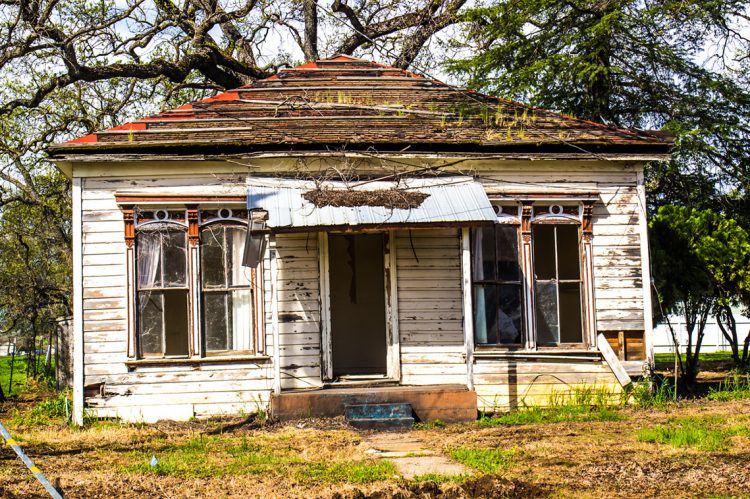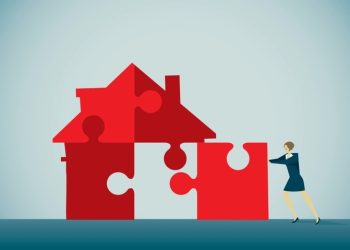Every now and then you may be driving through a particular neighborhood and see a home that is all boarded up. There are likely to be multiple no trespassing signs posted on the lawn and house.
What you are likely seeing is a condemned house. Condemned houses are usually not found in affluent areas. They are more commonly found in lower-income areas.
If you are like many others, you’re probably wondering how the home got to the point where it needed to be condemned.
If you are an investor or a contractor, you may also be wondering if the property will end up being sold. Many condemned homes end up being sold.
Unfortunately, it is often through the mortgage lender taking the home via a foreclosure.
Let’s have a look at some of the key things you need to know about condemned properties.
What are condemned houses?
The local government has deemed the house to be unfit to live in and has condemned it because of the deplorable condition.
When houses are deemed to be condemned, it’s almost always because the property has become a safety hazard.
Nobody will be able to occupy the home. When there are people living in a house that has been condemned, they will be forced to move out.
An owner or renter will not be able to move back into the house unless the condition that brought on the condemnation has been remedied.
When a homeowner makes all of the necessary repairs or renovations, the local municipality will usually allow a return.
What are the reasons a house is condemned?
There are a few circumstances that can cause a house to be condemned. One of the most common is multiple housing code violations that are creating safety issues for the occupant or even the general public.
Sometimes an owner will do a significant amount of work to a home without pulling the necessary building permits.
Shabby work ensues, which causes serious issues with safety surrounding the property. When conditions are deemed unsafe, a local building inspector has the power to put a condemnation order in place.
Other times, there can be serious sanitary conditions that create a health menace to the public. The perfect example would be a hoarder house, which has endless amounts of stock piled junk, including dead animals.
These types of properties can be infested with disease and other issues that can harm others.
When there are no sanitary living conditions present, a house can be condemned.
Another instance that can lead to condemning a property is when a black mold infestation occurs. Black mold can cause serious respiratory issues, especially for those who already have a health condition.
When conditions are bad enough, a death could occur in a home.
Another form of condemnation is through eminent domain
Sometimes, condemning a property has nothing to do with the condition. The government might want the property for some purpose.
In cases where the state or federal government wants a piece of land, they can take it by what’s called eminent domain.
When taking someone’s property occurs through eminent domain, they must be justly compensated. The government would need to pay the owner the current fair market value.
What happens to a condemned house?
When you own a condemned house, there will be a court hearing that determines whether the government has the right to declare condemnation. Usually there will be ample evidence that this is the case.
When a judgment is affirmed, the owners will need to vacate the property.
The government may require the house’s owner to make necessary repairs in order for the house to be deemed in good standing.
If the owner of a property does not want to make repairs, or the property is beyond repair, the government may mandate that the owner have it demolished at their expense.
Condemned houses often attract thieves who will vandalize the property even further. One of the common things that happens is the copper piping is removed and sold for cash.
Can you sell condemned houses?
Usually you can. The most common buyer for a condemned property is a real estate investor or building contractor.
Some will choose to fix up the property (if possible), while others will tear down the house to build a new home.
Final thoughts
Buying and selling a condemned home requires due diligence. Make sure you are educated on the subject before moving forward.
 Bill Gassett is a nationally recognized real estate leader who has been helping people buy and sell MetroWest Massachusetts real estate for the past 35 years. Bill is the owner and founder of Maximum Real Estate Exposure. For the past decade, he has been one of the top RE/MAX REALTORS® in New England.
Bill Gassett is a nationally recognized real estate leader who has been helping people buy and sell MetroWest Massachusetts real estate for the past 35 years. Bill is the owner and founder of Maximum Real Estate Exposure. For the past decade, he has been one of the top RE/MAX REALTORS® in New England.












